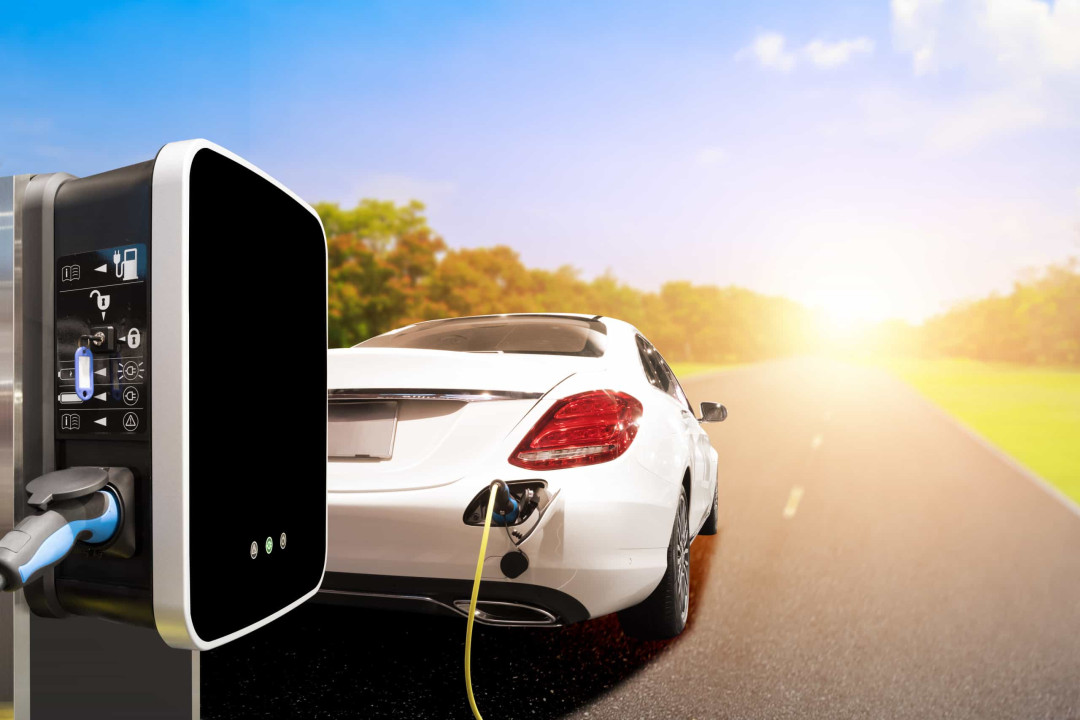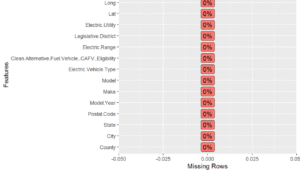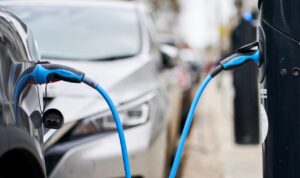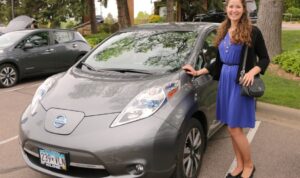Pros and Cons of Buying a Used Electric Car sets the stage for a fascinating exploration into the world of electric vehicles. As the market for used electric cars continues to grow, many potential buyers find themselves weighing the benefits against the drawbacks. From the financial advantages of a lower price to concerns about battery life, understanding these factors is crucial for making an informed decision.
With increasing awareness around environmental issues, used electric cars offer a unique combination of cost savings and sustainability. Statistics show a significant rise in the popularity of these vehicles, reflecting a shift in consumer preferences towards greener alternatives. This article aims to navigate through the essential aspects of purchasing a used electric car, highlighting the perks and pitfalls you might encounter along the way.
Introduction to Used Electric Cars
Used electric cars are defined as previously owned electric vehicles (EVs) that run entirely on electricity, utilizing battery power rather than traditional gasoline or diesel combustion engines. With the growing demand for environmentally friendly transportation options, the market for used electric cars has seen significant expansion in recent years. According to a report from the International Energy Agency, sales of used electric vehicles have surged, with a 40% increase recorded in the past year alone, emphasizing a notable shift in consumer preferences towards sustainable options.The appeal of electric vehicles extends beyond their ecological benefits; they offer lower running costs, reduced maintenance needs, and a quieter driving experience.
As more drivers become aware of these advantages, the notion of purchasing a used electric car becomes increasingly attractive. Factors such as government incentives, advancements in battery technology, and the widening network of charging infrastructure all contribute to making used electric cars a viable alternative to traditional vehicles.
Growth of the Used Electric Car Market
The used electric car market has witnessed remarkable growth, driven by both consumer demand and technological advancements. The following points highlight key factors contributing to this trend:
- Increased availability of used EVs: As more electric models enter the market, the supply of used electric cars expands, providing consumers with a wider choice.
- Affordability: Used electric cars often come at a lower price point than new models, making them accessible to a broader range of buyers.
- Improved battery life and performance: Recent advancements have led to better battery life, decreasing concerns about range anxiety among potential buyers.
- Environmental awareness: Growing concerns about climate change and air pollution encourage many consumers to consider electric options, including used vehicles.
- Government incentives: Various regions offer tax credits and rebates for EV purchases, further stimulating interest in used electric cars.
The evolution of the used electric car market reflects a significant cultural shift towards sustainability in transportation. As more consumers become educated about the benefits and availability of these vehicles, the market is expected to continue to expand, providing a greener alternative for everyday travel.
Advantages of Buying a Used Electric Car
Purchasing a used electric vehicle (EV) can open the door to numerous benefits that make it an appealing option for many drivers today. From significant cost savings to a positive impact on the environment, there are compelling reasons to consider a pre-owned electric car.
Cost Savings Compared to New Electric Cars
One of the most attractive advantages of buying a used electric car is the considerable financial savings compared to purchasing a new model. New electric cars often come with a hefty price tag, which can be a barrier for many prospective buyers. In contrast, used electric vehicles can be significantly more affordable, allowing buyers to get into an EV for much less.
For example, a new electric vehicle might cost around $40,000, while a three-year-old model could be found for as low as $25,000. This difference allows buyers to save thousands of dollars upfront. Additionally, as electric cars depreciate more slowly than their gasoline counterparts, the resale value of a used EV can remain relatively stable.
“Buying used can save you 30% to 40% compared to a new electric vehicle, making it an economical choice.”
The savings don’t stop at the purchase price; used electric vehicles can also benefit from lower operating costs. With federal and state incentives often applicable to used EVs, buyers may find additional rebates available, further enhancing their savings.
Environmental Benefits of Purchasing Used EVs
Opting for a used electric car contributes positively to environmental conservation efforts. By choosing a pre-owned EV, buyers effectively reduce their carbon footprint without the resource-intensive process of manufacturing a new vehicle. The environmental impact of producing new cars can be significant, involving the use of metals, plastics, and other materials that contribute to pollution and resource depletion.When consumers buy a used electric vehicle, they are extending the life cycle of a product that has already been manufactured, which minimizes waste.
According to a study by the International Council on Clean Transportation, electric vehicles produce less than half the emissions over their lifetime compared to internal combustion engine vehicles. By purchasing used, buyers are promoting sustainable practices and reducing the overall demand for new vehicle production.
“Extending the life of electric vehicles contributes to a significant reduction in overall emissions.”
The shift towards used EVs also encourages the circular economy, where products are reused and recycled, further benefiting the environment.
Potential for Lower Insurance Premiums on Used Electric Vehicles
Another financial advantage of buying a used electric car is the potential for lower insurance premiums. Insurance costs can vary significantly based on the age and market value of the vehicle. Since used electric vehicles typically have a lower market value compared to new ones, the cost to insure them often reflects this decrease. Insurance companies consider various factors when calculating premiums, and one of the key elements is the car’s value.
A used electric vehicle may cost less to repair or replace, translating to lower overall insurance costs. Furthermore, some insurance providers offer discounts specifically for electric vehicle owners, which can further reduce premiums.
“Choosing a used electric vehicle can lead to savings on insurance, making it a smart financial choice.”
In addition to lower premiums, many used EVs come equipped with advanced safety features that can also lower insurance rates, providing added peace of mind for the driver.
Disadvantages of Buying a Used Electric Car
Purchasing a used electric car can be an appealing choice for many buyers looking to save money and go green. However, it’s essential to weigh the potential downsides before making a decision. Understanding these disadvantages can help you make a more informed choice that aligns with your needs and expectations.
Battery Life and Degradation
One of the most significant concerns when buying a used electric car is the battery’s health and longevity. Electric vehicle (EV) batteries degrade over time, which can lead to reduced range and performance. Most manufacturers provide warranties covering the battery for a specific number of years or miles, usually around 8 years or 100,000 miles. However, older models may already show signs of battery degradation.
For instance, if a used EV originally offered a range of 250 miles, a battery that’s seen significant use might only provide 180 miles or less. This reduction can significantly impact your driving experience, especially if you rely on the vehicle for daily commuting or long trips.
Limited Availability of Parts for Older Models
When considering a used electric car, it’s essential to be aware of the potential challenges regarding parts availability for older models. Unlike traditional gas-powered vehicles, which often have a multitude of aftermarket parts available, used electric cars may face shortages due to the lower production volumes of certain models. For example, older Nissan Leafs or first-generation Chevy Bolts might struggle with parts availability, making repairs or replacements more complex and costly.
Furthermore, if the manufacturer has stopped supporting a particular model, obtaining necessary components—such as battery packs or specialized electronics—can become increasingly difficult, leading to prolonged downtimes and higher repair costs.
Concerns About Previous Accidents or Damages
Like any used vehicle, a pre-owned electric car may have a history of accidents or damages that could affect its safety and performance. Many buyers might not have complete access to the vehicle’s repair history or accident reports. For instance, an electric car that has suffered significant body damage could have hidden issues affecting its battery or electrical systems. To ensure you’re making a sound investment, it’s crucial to obtain a comprehensive vehicle history report and consider having the car inspected by a professional technician.
This due diligence can help uncover potential red flags, such as previous structural repairs or battery replacements, that could impact the vehicle’s value and reliability in the long run.
Financial Considerations

When it comes to buying a used electric car, financial considerations play a crucial role in making an informed decision. Evaluating the total cost of ownership, financing options, and potential savings can ensure that you invest wisely in a vehicle that meets your budget and needs.
Total Cost of Ownership Comparison
Understanding the financial implications of owning a used electric car versus a new model involves examining various factors, including depreciation, insurance, and maintenance costs. Below is a comparative table illustrating these costs for both used and new electric vehicles over a five-year span:
| Cost Factor | Used Electric Car | New Electric Car |
|---|---|---|
| Purchase Price | $25,000 | $40,000 |
| Depreciation (5 years) | $5,000 | $20,000 |
| Insurance (annual) | $800 | $1,200 |
| Maintenance (5 years) | $1,500 | $2,500 |
| Charging Costs (5 years) | $1,000 | $1,000 |
| Total Cost of Ownership | $32,500 | $64,700 |
This table highlights that a used electric car can significantly reduce your total cost of ownership, primarily due to lower initial purchase prices and reduced depreciation.
Financing Options
Exploring financing options is essential for making a purchase that aligns with your financial situation. When considering a used electric car, buyers typically have access to several financing avenues:
Credit Unions and Banks Many financial institutions offer competitive rates for used car loans, especially for electric vehicles due to their growing popularity. Interest rates may vary based on credit scores and the lender’s policies.
Dealership Financing Some dealerships provide financing options directly, sometimes even offering promotions or lower rates for electric vehicles. It’s advisable to compare these deals with other lenders to find the best option.
Personal Loans If you’re unable to secure favorable terms through a traditional auto loan, personal loans can be an alternative, although they might come with higher interest rates.
“Securing the best financing rate can save you hundreds, if not thousands, over the life of the loan.”
Long-term Savings on Fuel and Maintenance, Pros and Cons of Buying a Used Electric Car
Calculating long-term savings is vital when considering the purchase of a used electric car. The overall financial impact can be significantly beneficial due to lower operational costs. Here are key points to consider:
Fuel Savings Electric vehicles typically cost less to power than gasoline vehicles. For instance, charging an electric vehicle might cost around $5 for a full charge, providing an estimated range of 200 miles, compared to $40 or more for a gasoline vehicle covering the same distance.
Maintenance Costs Electric cars have fewer moving parts than combustion vehicles, which leads to reduced maintenance needs. For example, electric vehicles do not require oil changes, and brake maintenance is often less frequent due to regenerative braking systems. This can lead to savings of up to $1,000 over five years.
Tax Incentives Depending on your location, purchasing a used electric car may still qualify for certain tax credits or rebates, which can further lower the effective purchase price.By considering these financial aspects, prospective buyers can make informed choices that align with their financial goals while contributing to a sustainable future.
Inspection and Maintenance of Used Electric Cars
When considering a used electric vehicle (EV), understanding the unique aspects of inspection and maintenance is crucial. While electric cars generally require less maintenance than their gasoline counterparts, there are specific elements to assess before finalizing a purchase. This section will delve into essential inspection components, common maintenance tasks, and the importance of warranties for used EVs.
Inspection Checklist for Used Electric Cars
Before purchasing a used electric vehicle, it’s vital to conduct a thorough inspection to ensure that the car is in good condition and meets your expectations. Below is a checklist to guide you through this process:
- Battery Health: Check the battery’s state of health (SoH) and capacity. Most manufacturers provide tools or apps to assess the battery status. A battery with a SoH below 80% may require replacement soon.
- Charging History: Inquire about the charging habits of the previous owner. Frequent fast charging might affect battery longevity.
- Exterior and Interior Condition: Examine the body for scratches, dents, and rust. Check the interior for wear and tear, including upholstery and electronics.
- Tire Condition: Inspect tires for tread wear and proper alignment. Uneven tire wear can indicate underlying issues.
- Software Updates: Confirm that the vehicle’s software is up-to-date, as this can affect performance and safety features.
- Braking System: Test the braking system for responsiveness. Electric cars often have regenerative braking, which should feel smooth and consistent.
- Warranty Status: Check the existing warranty coverage and whether it can be transferred to you.
Common Maintenance Tasks for Electric Vehicles
Unlike traditional combustion engines, electric vehicles have fewer moving parts, leading to lower maintenance requirements. However, some tasks are specific to EVs and should not be overlooked:
- Battery Maintenance: Regularly check for software updates and battery management system alerts. Keeping the battery charged appropriately enhances its lifespan.
- Tire Rotation and Alignment: Maintain proper tire rotation and alignment every 5,000 to 7,500 miles to ensure even wear and optimal performance.
- Brake Fluid Replacement: Although electric vehicles use regenerative braking, the brake fluid should still be replaced every couple of years to prevent moisture buildup.
- Coolant System Check: Inspect the coolant level for the battery and power electronics systems. Regular checks help manage temperature and efficiency.
- Air Filter Replacement: Change the cabin air filter to maintain air quality inside the vehicle, particularly if the car has been driven in dusty conditions.
Warranties for Used Electric Vehicles
Understanding the warranty options available for used electric vehicles is crucial for long-term ownership. Many manufacturers offer warranties that cover the battery and major components, typically lasting several years or up to a specific mileage limit. Here are key insights regarding warranties for used EVs:
- Battery Warranty: Most EVs come with a separate battery warranty that can range from 8 to 10 years. This warranty usually covers battery defects and capacity loss below a certain threshold.
- Powertrain Warranty: This covers the electric motor and associated components, providing peace of mind against potential expensive repairs.
- Extended Warranties: Some dealerships may offer extended warranties for used EVs, which can be beneficial for those looking for additional coverage.
- Transferability: Verify if the existing warranty is transferable, as this can significantly affect your decision on the purchase.
Charging Infrastructure for Used Electric Cars
As the popularity of electric vehicles (EVs) continues to rise, the charging infrastructure supporting them has become increasingly essential. For prospective buyers of used electric cars, understanding the charging landscape is vital. This section will explore the availability of charging stations, the implications of home charging setups, and the various charging speeds and compatibility issues that may arise.
Availability of Charging Stations
The availability of charging stations varies significantly across different regions, impacting the practical use of used electric cars. Urban areas tend to have a denser network of charging stations, making it easier for EV owners to find convenient charging options. In contrast, rural areas might have limited access, presenting challenges for long-distance travel. Key points regarding charging station availability include:
- Urban centers often feature charging stations in public parking lots, shopping centers, and near major highways.
- Many charging networks offer mobile apps that provide real-time information on station availability and locations, enhancing user convenience.
- Government initiatives and incentives are increasingly promoting the installation of charging stations in less-served areas to improve accessibility.
Home Charging Setups
Home charging setups are a critical consideration for used electric car owners. Having a reliable home charging solution can significantly enhance the ownership experience by providing convenience and cost savings. The implications of installing a home charging station include:
- Home charging typically involves installing a Level 2 charging station, which can fully charge most EVs overnight.
- Costs for home charging installations may vary based on electrical capacity, with estimates ranging from $1,000 to $2,500, including equipment and installation.
- Home charging allows owners to charge their vehicles overnight, enabling a full battery every morning, which is advantageous for daily commuters.
Charging Speeds and Compatibility
Understanding charging speeds and compatibility is crucial for used electric car owners to optimize their charging experience. Different EVs may support various charging levels and speeds, which can influence charging times and overall convenience.Key aspects include:
- Charging levels range from Level 1 (standard household outlet, 120V) to Level 3 (DC fast charging), with each offering different charging speeds.
- Level 1 chargers typically provide 3-5 miles of range per hour, while Level 2 chargers can offer 10-60 miles of range per hour, making them more suitable for home use.
- DC fast chargers can provide up to 80% charge in just 30 minutes, making them ideal for road trips or quick stops along highways.
- Compatibility varies by make and model; therefore, it’s essential to verify whether a used electric car supports the desired charging types and speeds.
Long-term Value of Used Electric Cars
The long-term value of used electric cars (EVs) is a vital consideration for potential buyers, as it can significantly affect the overall ownership experience. Understanding how various factors influence resale value helps buyers make informed decisions. The depreciation rates of used electric cars, when compared to traditional vehicles, reveal important insights into their financial viability. Additionally, the rapid pace of technological advancements impacts the value of older electric vehicles, making it essential to evaluate these aspects.
Factors Influencing Resale Value
Several factors play a significant role in determining the resale value of used electric cars. Key considerations include:
- Battery Health: The condition and capacity of the battery largely influence resale value. A well-maintained battery maintains better range and overall performance, leading to higher resale prices.
- Brand Reputation: Brands with a strong reputation for reliability and performance often see their used models retain value better than lesser-known manufacturers.
- Mileage: Lower mileage typically correlates with a higher resale value, as it suggests less wear and tear on the vehicle.
- Market Demand: As electric vehicles become more mainstream, demand for used models increases, driving up prices, particularly for popular models.
- Condition and Maintenance History: A well-maintained vehicle with a documented service history attracts buyers and can command a higher price.
Depreciation Rates Compared to Traditional Vehicles
Used electric cars generally show different depreciation patterns compared to traditional gasoline vehicles. While all vehicles depreciate over time, the initial depreciation of electric cars tends to be steeper, especially within the first few years of ownership. However, as consumer acceptance of EVs grows, the depreciation rate may stabilize. Here are some key points regarding this comparison:
- According to automotive data, traditional vehicles can lose around 50-60% of their value within the first five years. Electric vehicles, on the other hand, can depreciate by as much as 70% in the same timeframe, primarily due to rapid advancements in technology and battery performance.
- The introduction of new models with better range and features can make older electric vehicles less attractive, further influencing depreciation rates.
- However, factors like tax incentives and increasing fuel prices can enhance the appeal of used electric cars, potentially softening their depreciation over time.
Impact of Technological Advancements
The pace of technological advancements in electric vehicles significantly affects the long-term value of older models. As manufacturers continuously improve battery technology and introduce new features, the value of earlier models can diminish. Some important aspects to consider include:
- Battery Technology: Newer models often feature advanced battery technology that offers longer ranges and faster charging times, which can render older models less desirable.
- Software Updates: Many manufacturers provide over-the-air software updates that improve functionalities and performance. Older models lacking such updates may see a drop in appeal.
- Range Improvements: As newer EVs offer increased range, older models may struggle to compete, particularly if they have a significantly lower driving range.
- Charging Infrastructure: As charging stations become more accessible and faster, the convenience of newer EVs may overshadow older models, impacting their resale value.
The rapid evolution of electric vehicle technology is transforming the landscape for used car values, emphasizing the importance of making informed purchasing decisions based on current market trends.
Buyer Experiences and Testimonials: Pros And Cons Of Buying A Used Electric Car
Many individuals have taken the plunge into the world of used electric vehicles (EVs), each with their own unique stories and experiences. From first-time buyers to seasoned electric car enthusiasts, their narratives can provide valuable insights for prospective buyers. Understanding these real-life experiences can help demystify the buying process and highlight both the triumphs and challenges of owning a used EV.The transition to a used electric car often comes with its own set of challenges, such as range anxiety and understanding charging options.
However, many buyers have shared how they navigated these hurdles and what they learned along the way. Their collective wisdom can serve as a guide for those considering a similar path.
Common Challenges Faced by Used EV Buyers
Navigating the used electric car market can be daunting. Buyers frequently encounter various challenges that require patience and knowledge. Here are some notable challenges and how they were overcome:
- Range Anxiety: Many buyers initially struggled with concerns about how far they could travel on a single charge. To manage this, some enthusiasts began using smartphone apps that track charging stations, which eased their worries about running out of battery.
- Battery Health: Understanding battery degradation was a common issue. Buyers learned to inquire about the battery’s state of health during inspections and sought vehicles with better warranties to ensure they were making a sound investment.
- Charging Infrastructure: A lack of charging stations in certain areas posed a challenge for some. Buyers often adjusted their daily habits by planning trips around available charging stations and even installed home chargers, which provided greater convenience.
- Maintenance Knowledge: New EV owners sometimes faced confusion regarding maintenance needs. Learning from online communities and forums helped many buyers understand what services were necessary and when to seek them.
Tips from Experienced Used Electric Car Owners
Those who have successfully transitioned to used electric vehicles often have valuable tips to share with newcomers. These insights can help potential buyers make informed decisions and enhance their ownership experience:
- Research Models: Familiarize yourself with various electric car models and their specifications. Websites dedicated to EV reviews and forums can provide insights into real-world performance and owner satisfaction.
- Inspect Thoroughly: Conduct a comprehensive inspection of the vehicle. It’s advisable to arrange for a professional inspection, focusing on the battery and overall condition to avoid future issues.
- Understand Incentives: Be aware of any local or federal incentives for purchasing used EVs. These can significantly reduce the overall cost and sometimes include tax credits or rebates.
- Join EV Communities: Connect with local electric vehicle clubs or online forums. These communities are valuable resources for advice, troubleshooting, and shared experiences that can enrich your ownership experience.
- Test Drive: Before finalizing your purchase, take the car for a test drive. Pay attention to how it handles and any unique features that may not be apparent from just reading reviews.






